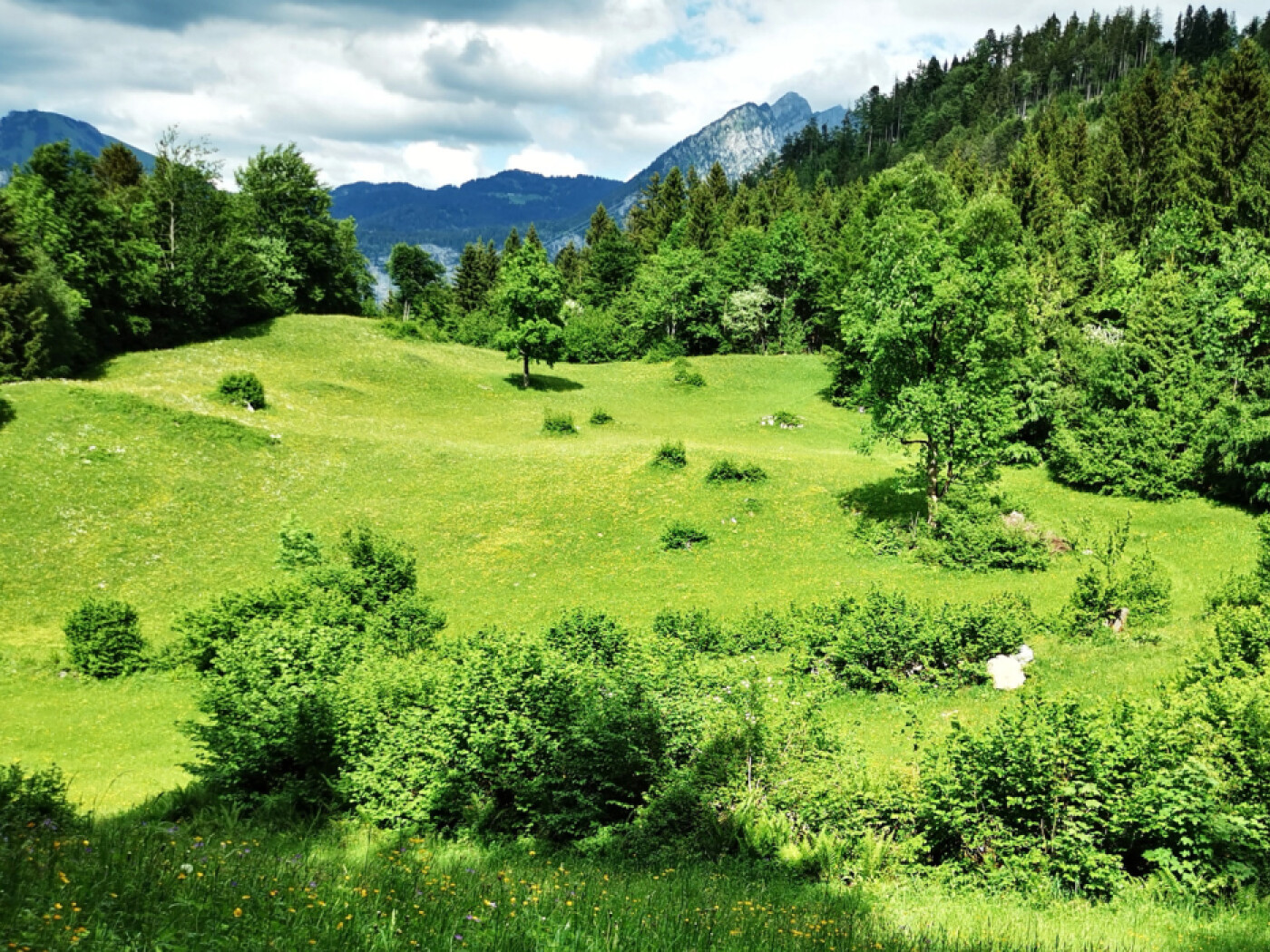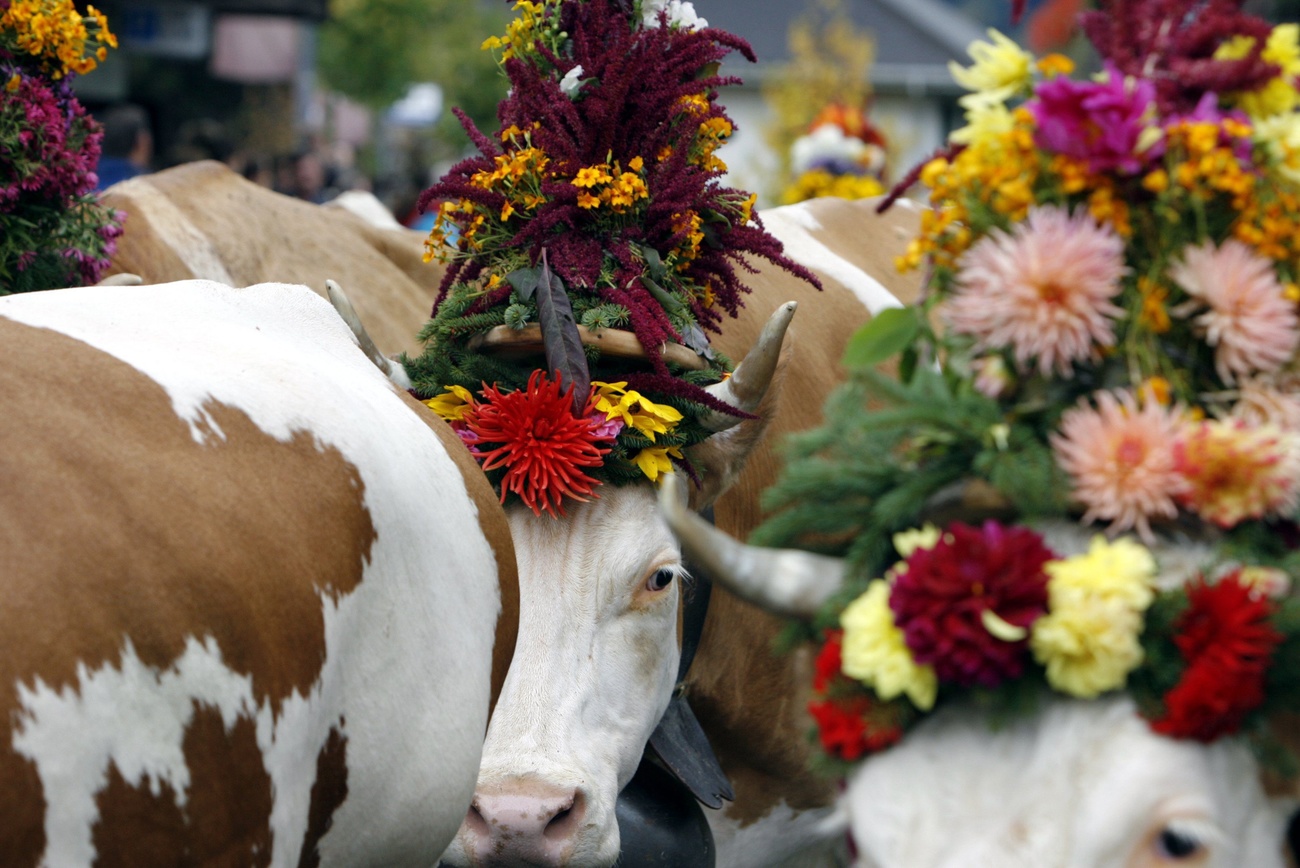
Higher direct payments fail to curb scrub encroachment on alpine pastures

The encroachment of scrub vegetation on Swiss alpine pastures leads to the loss of grassland and damages the typical landscape. It is also responsible for the decline in biodiversity. Despite higher direct payments, scrub continues to spread.
This conclusion was published by the Swiss agricultural research institute (Agroscope) on Tuesday. According to the study, scrub encroachment is the result of abandoned cultivation and a change in the type and intensity of agricultural use. Green alder dominates the scrub encroachment, which also leads to a decline in biodiversity.
+Get the most important news from Switzerland in your inbox
To counteract this, there are various incentives in the form of direct payments for alpine farming. In 2014, the federal government increased one of them or introduced two new ones. The summer grazing contributions were increased. Direct payments for biodiversity promotion areas and quality contributions for the maintenance of typical regional landscapes are new.
For the study, Agroscope analysed the effects of subsidies on grassland and scrub encroachment for the first time using data from alpine farms in the canton of Graubünden.
According to the researchers, the study indicates that the increased direct payments led to an average 2% higher loss of grassland. This corresponds to an average of 4.7 hectares per farm within ten years. Agroscope did not analyse the impact on species richness, the diversity of structural elements in the landscape and income.
False incentives identified
For the agricultural experts at Agroscope, several factors could be causing the loss of grassland. Firstly, the distribution of livestock on the alpine pastures could have changed. In order to protect sensitive species, alpine herdsmen and women no longer drove their cattle onto the biodiversity promotion areas. As an unintended side effect, scrub encroachment increased.

More
The difficult search for real Swiss cows
On the other hand, the covering of the soil with unrotted plants, i.e. mulching, may also have decreased on the biodiversity promotion areas. According to Agroscope, mulching is the most effective and cheapest method against scrub encroachment.
However, these disincentives need to be investigated further, the competence centre wrote. Agroscope suggests, however, that direct payments should be more closely linked to specific measures for open grassland. The study was published in the Journal of Agricultural EconomicsExternal link.
Adapted from German by DeepL/ac
We select the most relevant news for an international audience and use automatic translation tools to translate them into English. A journalist then reviews the translation for clarity and accuracy before publication.
Providing you with automatically translated news gives us the time to write more in-depth articles. The news stories we select have been written and carefully fact-checked by an external editorial team from news agencies such as Bloomberg or Keystone.
If you have any questions about how we work, write to us at english@swissinfo.ch

In compliance with the JTI standards
More: SWI swissinfo.ch certified by the Journalism Trust Initiative






























You can find an overview of ongoing debates with our journalists here . Please join us!
If you want to start a conversation about a topic raised in this article or want to report factual errors, email us at english@swissinfo.ch.